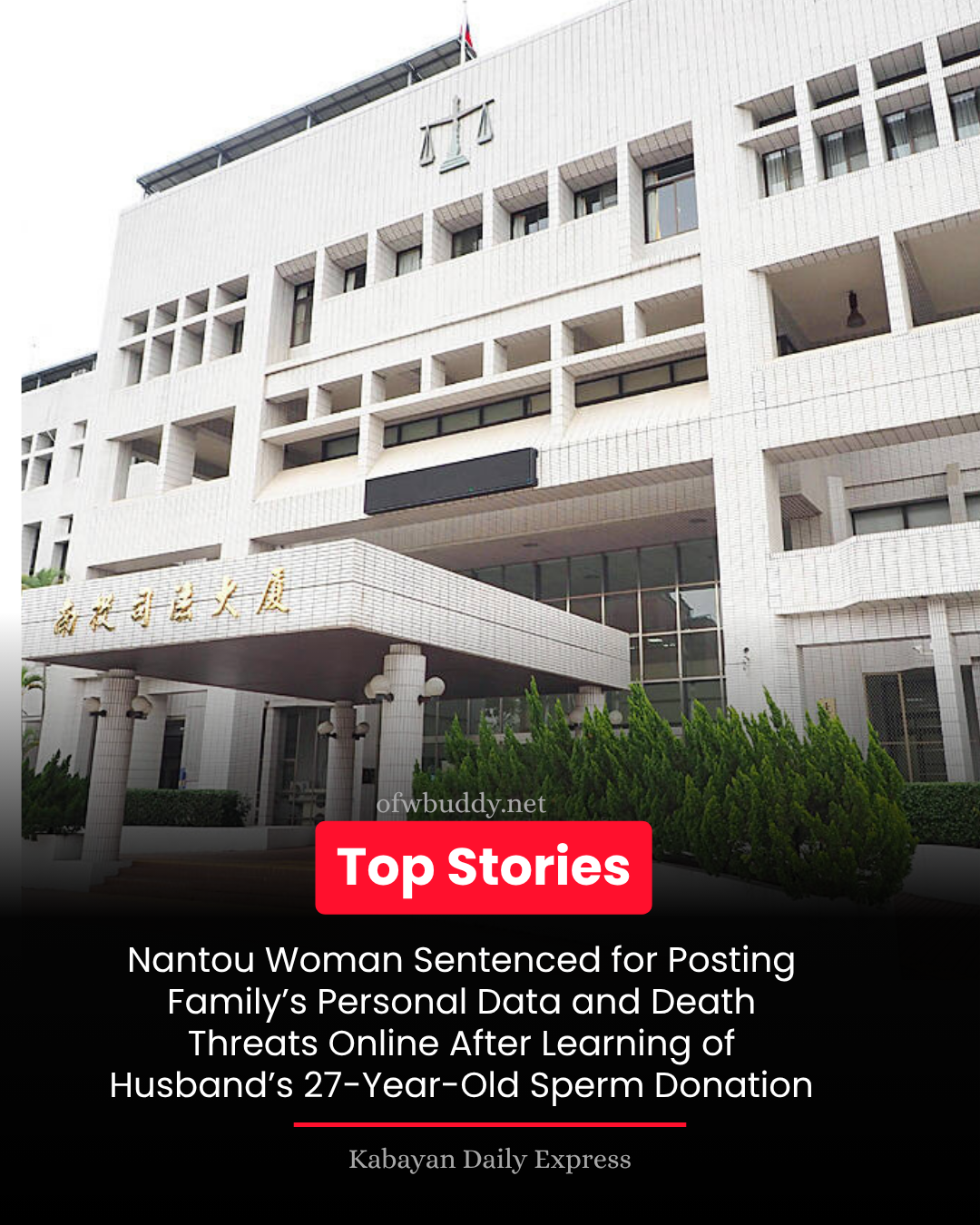October 21, 2025 – Nantou County, Taiwan
A woman from Nantou County was sentenced to four months in prison and 40 days of detention after publicly posting her relatives’ personal information and threatening to kill her niece on social media. The outburst came after she discovered that her husband had donated sperm to his sister-in-law 27 years ago, resulting in the birth of a daughter.
According to court documents, the 60-year-old woman, surnamed Wu, was devastated upon learning last year that her husband had secretly donated sperm decades earlier to assist her aunt in conceiving a child through artificial insemination. The revelation caused deep emotional distress and anger, which led her to target her relatives online.
Between June 2024 and March 2025, Wu reportedly posted a series of 16 messages across various Facebook community groups in Nantou County and other areas where her aunt worked. Using both her real and fake accounts—sometimes impersonating her husband—she published private information about her uncle, aunt, and their daughter.
In the posts, Wu used harsh language, insulting her relatives by calling them “shameless” and accusing her aunt of infidelity. She went as far as to threaten to travel to Taipei to kill her niece, prompting serious alarm within the family.
Unable to endure the continued harassment, her uncle and aunt filed charges of aggravated defamation, public insult, and violation of the Personal Data Protection Act.
During the investigation, Wu admitted to writing all the online posts but refused to apologize, reconcile, or provide compensation to her relatives. The Nantou District Court ruled that her actions constituted illegal use of personal information and intimidation endangering safety.
The court sentenced her to four months in prison for the illegal use of personal data and 40 days of detention for issuing threats. If the penalties are converted into fines, Wu will be required to pay a total of NT$160,000.
The case underscores the legal risks of online harassment and misuse of personal information, reminding the public that social media is not a place to vent private grievances.

